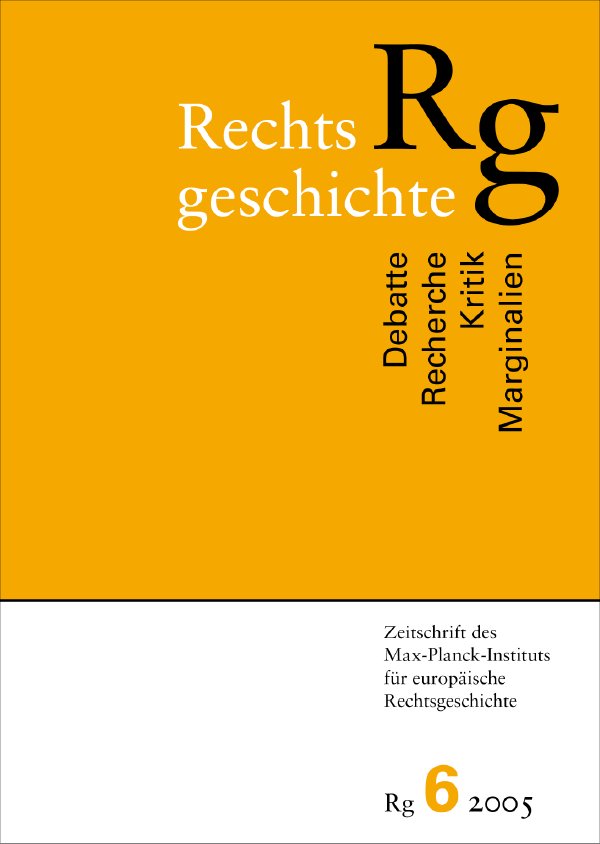Solidarität und Identität
DOI:
https://doi.org/10.12946/rg06/040-061Abstract
Solidarity, despite being overladen with the ideological concepts of the 60s of the 19th century, has lost so little of its propagandist effect that it has now become the headline of Chapter IV of the European draft constitution. The notion itself has come down from Roman law, but as the expression of common liability within a restricted group it became a basic feature of the old European social order. The link to corporatively experienced issues of the ancien régime and to the roman legal concept through the French Revolution paved the way for solidarity as leitmotif to enter the common currency of politics in the 19th century. The exclusion always immanent in the concept of solidarity led in Germany after 1933 not only to an ideological but also to a juridical deeply anchored collective order, and one which survived the end of the War and formed one of the basic features of the succession state of the German Reich.
Downloads
Veröffentlicht
Zitationsvorschlag
Ausgabe
Rubrik
Lizenz
Copyright (c) 2005 Autor/in

Dieses Werk steht unter einer Creative Commons Namensnennung - Nicht-kommerziell - Keine Bearbeitung 3.0 International -Lizenz.





